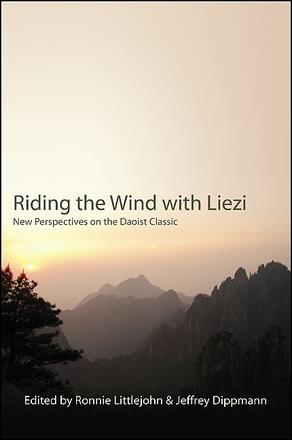
Riding the Wind with Liezi
New Perspectives on the Daoist Classic
Alternative formats available from:
New attention and fresh perspectives on the classic, but neglected, text of Daoism, the Liezi.
Description
The Liezi is the forgotten classic of Daoism. Along with the Laozi (Daodejing) and the Zhuangzi, it's been considered a Daoist masterwork since the mid-eighth century, yet unlike those well-read works, the Liezi is little known and receives scant scholarly attention. Nevertheless, the Liezi is an important text that sheds valuable light on the early history of Daoism, particularly the formative period of sectarian Daoism. We do not know exactly what shape the original text took, but what remains is replete with fantastic characters, whimsical tales, paradoxical aphorisms, and philosophically sophisticated reflection on the nature of the world and humanity's place within it. Ultimately, the Liezi sees the world as one of change and indeterminacy.
Arguing for the Liezi's historical, philosophical, and literary significance, the contributors to this volume offer a fresh look at this text, using contemporary approaches and providing novel insights. The volume is unique in its attention to both philosophical and religious perspectives.
Ronnie Littlejohn is Professor of Philosophy at Belmont University and the author of Daoism: An Introduction. Jeffrey Dippmann is Associate Professor of Philosophy and Religious Studies at Central Washington University.
Reviews
"The publication of this collection of philological and philosophical essays on the Liezi by Ronnie Littlejohn and Jeffrey Dippmann is good news for everyone working in the fields of Early Chinese Thought and Daoist Studies. " — Dao
"The Liezi is one of the lesser-known Daoist classics in the West even though English translations of the text are not lacking. Scholarly studies are scarce, and thus the publication of Riding the Wind with Liezi … should be celebrated. " — Philosophy East & West
"Riding the Wind with Liezi is a timely and welcome collection of essays that explore crucial aspects of this long-neglected Daoist text. " — Southeast Review of Asian Studies
"This edited volume takes an important step towards filling a gaping hole in Western scholarship concerning this classic text of the Daoist tradition … the world of Chinese studies benefits greatly from the presentation of this volume … Riding the Wind with Liezi offers engaging and interesting analyses by specialists in philosophy, religion, and Chinese culture. " — Journal of Chinese Religions